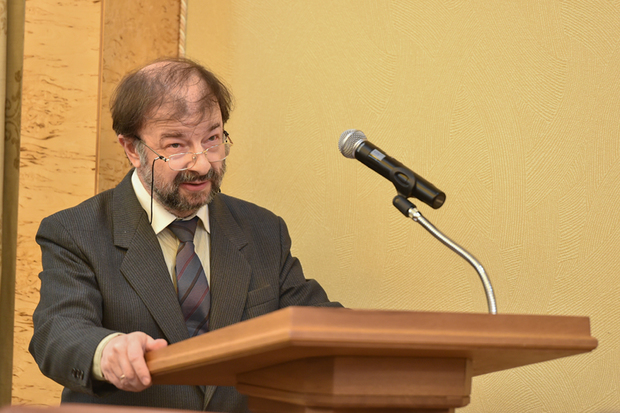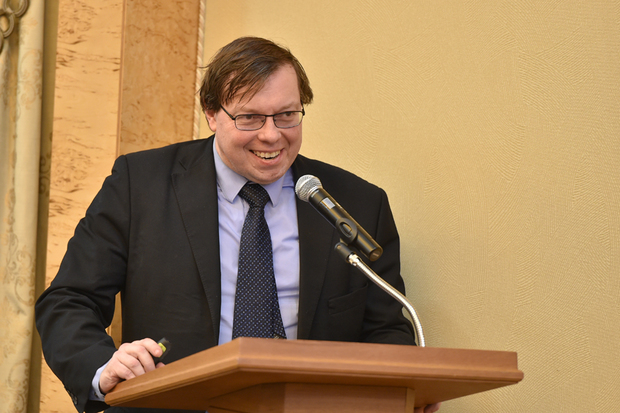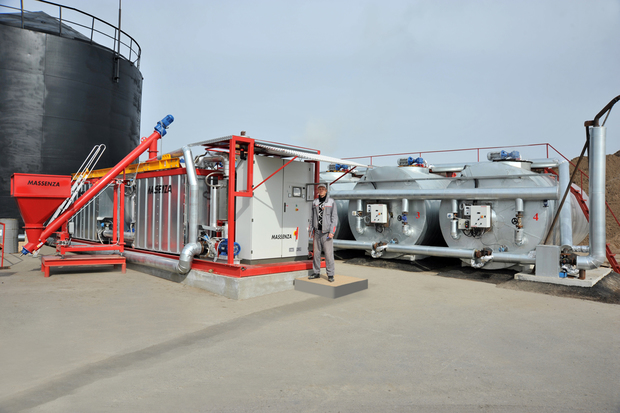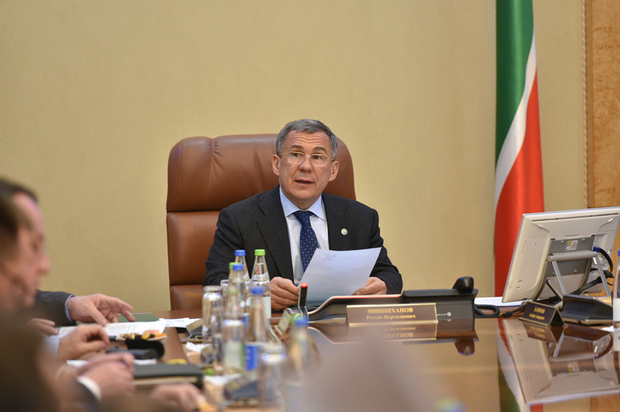Tatarstan is offered to join the three of leaders concerning the volume of financing of investment projects
How to produce ethylene from methane? How high-octane components help to produce Euro-5 gasoline without using environmentally unfriendly processes? What technologies can help to increase the depth of heavy oil conversion to 99%? Why does the road industry of Tatarstan need new standards of the upper layer of road surface? Members of the board of directors of Tatneftekhiminvest-holding PJSC found the answers to these questions as well as a correspondent of Realnoe Vremya on 23 March at a sitting.
To get rid of dependence on raw material
A project, which was presented by the leading scientific worker of the Laboratory of Heterogeneous Catalysis of Semyonov Institute of Chemical Physics Mikhail Sinev, was called as a 'guarantee of the independence of petrochemical factories on raw material' by the very worker. The technology presupposes a direct synthesis of ethylene from methane. Ethylene is a basic product for the Russian petrochemistry, a foundation for the production of organic chemicals.
In Russia, the process of ethylene production from methane was studied from the 80s of the 20th century. But all works stopped by the 90s. Now the elaborations renewed. Mikhail Sinev thinks that a project of Shag CJSC from Moscow is the more perspective and reliable. This company has been working on ethylene production using a technology of oxidizing condensation of methane in the presence of an oxidizing agent – oxygen –for 10 years. And the creator is ready to start the creation of a pilot equipment with a capacity equal to several thousands of tonnes of ethylene per year. As the expert estimates, the Russian technology of ethylene production from methane might be created during 3-5 years.

The President of the Republic of Tatarstan Rustam Minnikhanov noted that the project was very interesting and topical: 'It all interests us. But mistakes are not acceptable here , a right track is to be chosen'. He advised the head of Tatneftekhiminvest-holding Rafinat Yarullin and the representatives of the interested petrochemical enterprises of Tatarstan to study the technology.
Higher quality gasoline
The next projects had quite a complicated name – isobutane alkylation process with olefin using zeolites. But, as the deputy director of Topchiev Institute of Petrochemical Synthesis of the Russian Academy of Sciences Anton Maksimov told, they are speaking about a production of high-octane components of gasoline. This process found its place in the industry of USA. It is expected that the component of gasoline produced using this technology will be 24,5% by 2030, and in Russia, the share of the component will increase from 3,5% to 15%. The alkylation process presented is perspective in terms of ecology, it does not include ecologically harmful production processes using sulfuric acid, minimizes emissions of harmful substances into the atmosphere and allows to produce a higher number of octane component for Euro-5 gasoline.
The calculation made for Moscow Petroleum Refining Factory demonstrated that this technology allows to reduce the capital spending by 10% compared with the alkylation technology with sulfuric acid used now.

From grandfather to grandkid
Another project is the creation of the innovation equipment to process heavy oils to reach a 99% conversion depth. According to the director general of Beta-tekhnologii PLC Leonid Tsoi, his grandfather started the elaboration of this technology.
Igor Trushnikov, deputy director general of Beta-tekhnologii PLC (Moscow), presented the project and informed that the equipment enables to increase the energy efficiency of heavy oil conversion manyfold besides high conversion depth. The technology consists of physical coercion to heavy molecules of hydrocarbons by accelerated electrons and microwave.
Igor Trushnikov told that the pilot equipment was already created, which is situated in Skolkovo. Investments are needed for further development of the project: 80m rubles at the second stage and 1,5bn rubles – at the third one. It seems that the republic is considered as a potential investor. So, the creator offered the republic to join the three on investments in innovation projects and deal with Russian exported technologies, not import substitution. Now Tatarstan takes the fourth place in Russia in this parameter.
The prospect of becoming the main sponsor of innovations did not inspire Rustam Minnikhanov very much. He stated that the technology of bitumen oil conversion was more important.
'You are moving in a correct direction. The Americans have already hired our specialists to elaborate the technology of bitumen oil conversion,' Leonid Tsoi supported the head of Tatarstan.
'It would be good if you led the Americans as Ivan Susanin but using a more complicated way. It is a joke, of course,' the President replied.

Only three years
'It is a vital topic for us. Now the upper layer of road surface lasts almost for 3 years. We should elaborate new standards for road surfaces and look for new materials,' said the President about the next project. On the President's initiative, Alekseyevskdorstroy PJSC organized a production of polymer-modified bitumen (PMB) in the composition of bituminous concrete mixes to increase the durability of road surfaces. Elasticity, extended temperature range, augmented stability to abrasion.
In May 2014, Alekseyevskdorstroy launched a unit to polymer-modified bitumen production unit, which produced 20 tonnes per hour. This unit might enable to produce 15 tonnes of polymer-modified bitumen per season to lay the upper construction of surface for 300 km of roads whose carriageway width is 8 metres. PMB consists of ordinary bitumen, plasticizers, additives and South Korean polymer.
PMB technology has been applied to lay the road surface in 10 streets of Kazan, on Bazarnye Mataki – Bolgar route, in a section of Kazan – Orenburg highway within 2 years. In 2014-2015, the upper layer of the road surface was equal to 49 km in total.
The durability of the road surface with PMB, according to the director general of Alekseyevskdorstroy PJSC Foat Valiev, is 45% higher than a standard bituminous concrete surface. Inter-repair time on roads with PMB increased from 6 to 10 years.

The President of Tatarstan enquired the representative of the Ministry of Transport and Roads of Tatarstan about the streets the new technology was applied, and the state of the roads now. According to the observation of the Ministry of Transport and Roads of Tatarstan, abrasion of road carpet is equal to 1 millimetres on busy N. Nazarbaev, S. Sadykova, Gvardeyskaya Streets and A. Kamaleyev Prospect.
Rustam Minnikhanov gave the Ministry of Transport and Roads of Tatarstan an assignment to examine the roads with new covering and think about a creation of new standards of the upper layer of roads. 'We cannot lay asphalt every three years,' the President of Tatarstan defined the problem.